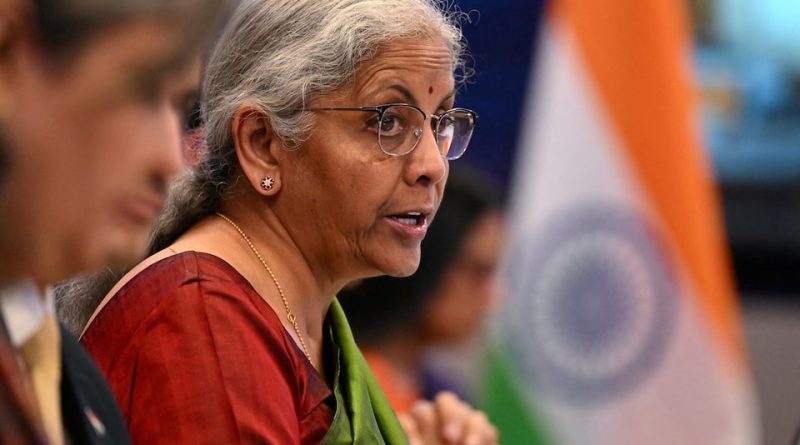India’s Growth Remains Strong Amid Global Challenges, Says Finance Minister
New Delhi – India’s economic growth continues to demonstrate resilience, with the government committed to supporting the country’s development through strategic investments, Finance Minister Nirmala Sitharaman said on Friday. Speaking at the Economic Conclave organized by the finance ministry, Sitharaman highlighted that India’s economy is firmly anchored in domestic drivers, ensuring stability even amidst global uncertainties.
“India’s growth remains firmly rooted in domestic factors, including consistent levels of consumption and investment, which help shield our economy from external shocks,” Sitharaman said. She emphasized that careful planning and execution remain essential to sustaining this momentum, encouraging “quiet confidence” in decision-making.
Despite some global challenges, including the recent U.S. tariffs on Indian goods, the economy has maintained remarkable growth. The tariffs, which were increased to as much as 50% on select Indian products such as textiles, leather goods, and chemicals, are among the highest applied to U.S. trading partners. Nevertheless, the Indian economy continues to perform strongly, showcasing its adaptability and resilience.
A key factor underpinning India’s robust economic outlook is its commitment to infrastructure development. As part of the federal budget for the fiscal year ending March 2026, the government has earmarked a record 11.21 trillion rupees ($126.3 billion) for infrastructure projects, slightly higher than the previous year. This sustained investment is expected to generate significant employment opportunities, improve connectivity, and strengthen long-term economic productivity.
India’s domestic demand, driven by both consumption and investment, continues to provide a stable foundation for growth. The economy expanded by 7.8% year-on-year during the April-June quarter, marking the fastest growth rate in five quarters and reflecting strong activity across manufacturing, services, and agriculture. Analysts project a full-year growth rate of 6.8%, highlighting India’s ability to navigate global uncertainties while maintaining strong domestic momentum.
The Reserve Bank of India has also signaled support for growth, keeping its policy rate steady at 5.5% while maintaining flexibility for potential rate reductions in December. This measured approach is aimed at balancing the impact of global trade tensions and domestic consumption tax adjustments, further reinforcing economic stability.
Sitharaman underscored that India’s steady macroeconomic fundamentals and proactive policy measures create a favorable environment for investors, businesses, and citizens alike. She reiterated the government’s commitment to ensuring that infrastructure, investment, and domestic demand remain key drivers of sustained economic growth.
“India’s economic strategy is focused on long-term resilience and development,” she said. “By continuing to invest strategically and maintaining confidence in our domestic strengths, we can weather global challenges while promoting inclusive growth for our citizens.”
Experts say India’s emphasis on infrastructure spending, investment in technology, and domestic consumption positions the nation to remain a global economic leader. While challenges such as global trade tensions persist, India’s domestic-led growth model provides stability and long-term optimism for both investors and citizens.
The finance minister’s remarks reflect a broader commitment to reinforcing India’s economic foundations, highlighting that careful planning, investment in key sectors, and a focus on domestic growth can create resilience against global uncertainties. With robust economic fundamentals, strategic policy support, and sustained infrastructure development, India is well-positioned to continue its trajectory as one of the world’s fastest-growing major economies.



